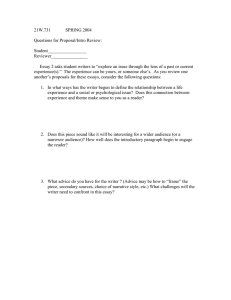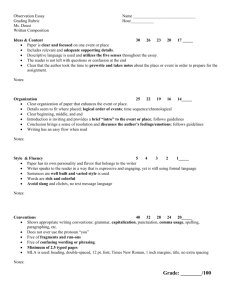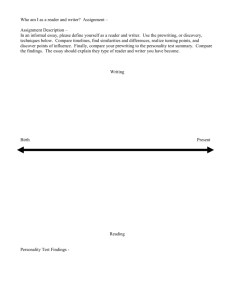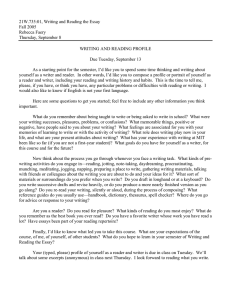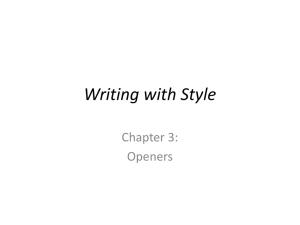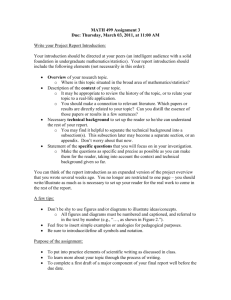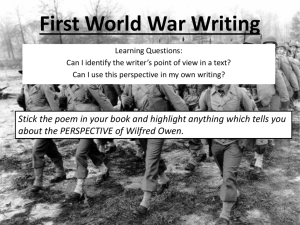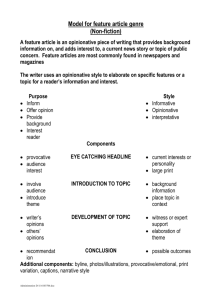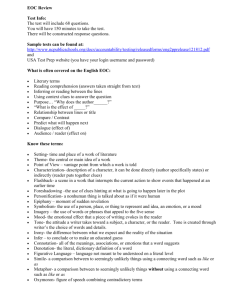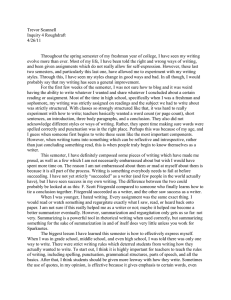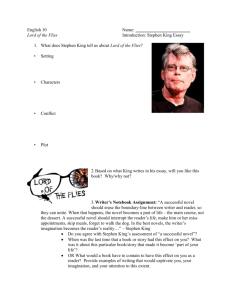EXPERIMENT WITH ESSAY LEADS
advertisement
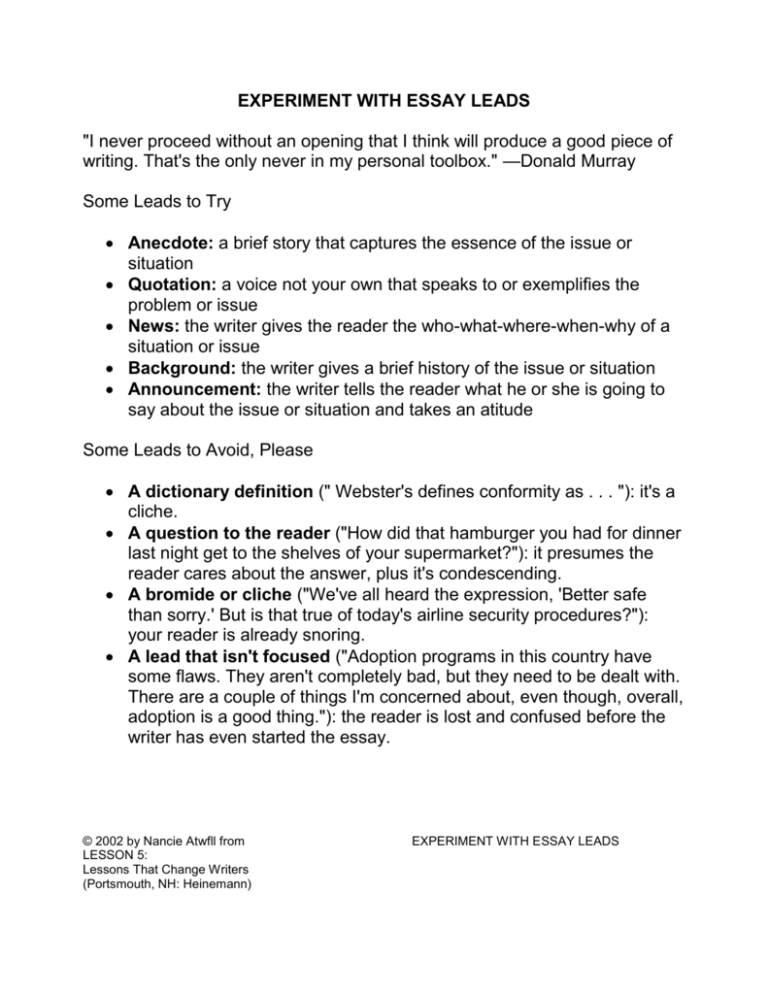
EXPERIMENT WITH ESSAY LEADS "I never proceed without an opening that I think will produce a good piece of writing. That's the only never in my personal toolbox." —Donald Murray Some Leads to Try Anecdote: a brief story that captures the essence of the issue or situation Quotation: a voice not your own that speaks to or exemplifies the problem or issue News: the writer gives the reader the who-what-where-when-why of a situation or issue Background: the writer gives a brief history of the issue or situation Announcement: the writer tells the reader what he or she is going to say about the issue or situation and takes an atitude Some Leads to Avoid, Please A dictionary definition (" Webster's defines conformity as . . . "): it's a cliche. A question to the reader ("How did that hamburger you had for dinner last night get to the shelves of your supermarket?"): it presumes the reader cares about the answer, plus it's condescending. A bromide or cliche ("We've all heard the expression, 'Better safe than sorry.' But is that true of today's airline security procedures?"): your reader is already snoring. A lead that isn't focused ("Adoption programs in this country have some flaws. They aren't completely bad, but they need to be dealt with. There are a couple of things I'm concerned about, even though, overall, adoption is a good thing."): the reader is lost and confused before the writer has even started the essay. © 2002 by Nancie Atwfll from LESSON 5: Lessons That Change Writers (Portsmouth, NH: Heinemann) EXPERIMENT WITH ESSAY LEADS
